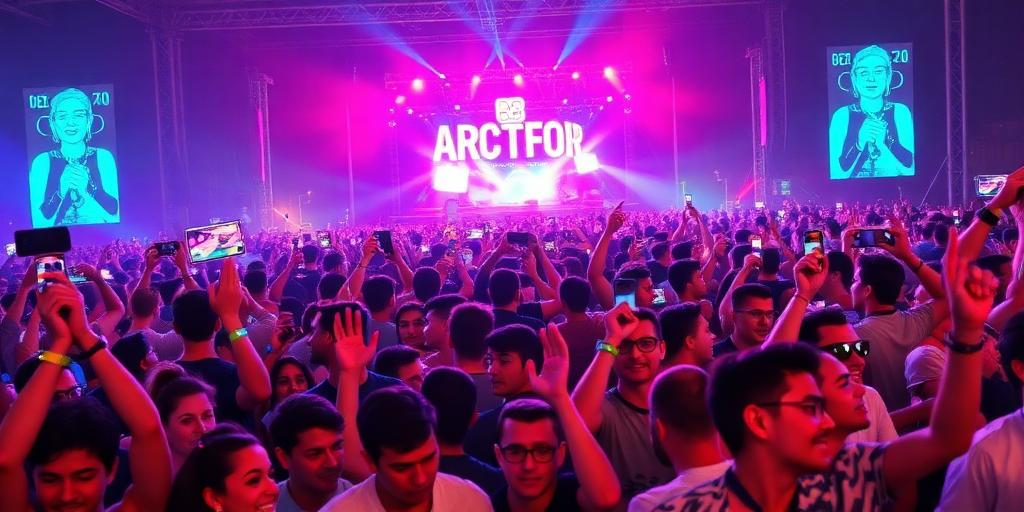The landscape of live entertainment is in constant flux, prompting critical inquiry into the enduring relevance of established cultural phenomena. In the wake of rapid technological advancements and shifting consumer behaviors, a pertinent question arises: are music festivals still a vital component of the global cultural calendar in 2025? This analysis posits that not only do music festivals retain their significance, but they are also evolving into more dynamic, diversified, and immersive experiences, ensuring their continued resonance in the coming years.
The Immutable Allure of Collective Experience
At their core, music festivals tap into a fundamental human need for communal gathering and shared emotional experiences. The unparalleled energy of live performances, the serendipitous discovery of new artists, and the formation of transient communities remain potent draws that digital alternatives cannot fully replicate. As society becomes increasingly digitized, the desire for tangible, in-person interactions—especially those anchored by a powerful cultural catalyst like music—is arguably stronger than ever. The sensory overload and collective effervescence unique to a festival environment provide a stark contrast to screen-mediated consumption, offering a vital escape and a powerful sense of belonging.
Navigating an Evolving Landscape: Adaptation and Innovation
The notion that music festivals might become obsolete often stems from overlooking their inherent adaptability. Organizers are acutely aware of contemporary challenges, including environmental impact, escalating operational costs, and attendee expectations for enhanced comfort and safety. Consequently, festivals are actively implementing sustainable practices, from renewable energy sources to waste reduction initiatives. Furthermore, pricing models are being re-evaluated, with tiered ticketing and payment plans becoming more prevalent to maintain accessibility. The focus has shifted from mere spectacle to holistic experience design, encompassing wellness zones, gourmet food offerings, and art installations that transcend the musical lineup. This strategic evolution ensures a more rounded and appealing proposition for modern audiences, affirming the future of music festivals.
Technology as an Enabler, Not a Replacement
While virtual concerts and metaverse experiences offer novel ways to consume music, they primarily serve as complements rather than substitutes for physical festivals. In 2025, technology is increasingly integrated to enhance the on-site experience. This includes sophisticated cashless payment systems, advanced mobile apps for personalized scheduling and navigation, and augmented reality (AR) overlays that add interactive layers to performances and art installations. Even beyond the immediate experience, data analytics gathered from past events inform future planning, allowing organizers to tailor offerings more precisely to attendee preferences. Far from being threatened, festivals are leveraging technological advancements to create more seamless, engaging, and personalized environments.
The Rise of Niche and Curated Experiences
The era of the monolithic mega-festival, while still present, is being augmented by a proliferation of smaller, highly curated events. These niche festivals cater to specific musical genres, subcultures, or thematic interests, offering a more intimate and tailored experience. This diversification allows for a broader market appeal, addressing the diverse preferences of various demographics. From boutique electronic music gatherings in remote locations to culturally specific celebrations featuring local artists, the festival ecosystem is becoming richer and more fragmented. This strategic segmentation ensures that the "festival experience" remains accessible and attractive to a wider array of consumers, preventing market saturation and fostering innovation.
Beyond the Beats: Cultural and Economic Catalysts
Music festivals contribute significantly beyond entertainment value. They are economic engines, generating revenue for local economies through tourism, hospitality, and employment. Culturally, they serve as crucial platforms for artistic expression, fostering emerging talent, and preserving diverse musical traditions. They often act as social incubators, facilitating networking and community building among like-minded individuals. In 2025, the role of festivals as cultural hubs and economic drivers will remain undeniable, reinforcing their broader societal utility.
Conclusion
The question of music festivals' relevance in 2025 can be definitively answered: they are not only relevant but are indispensable. By embracing innovation, prioritizing sustainability, leveraging technology, and diversifying their offerings, music festivals have demonstrated remarkable resilience and adaptability. They continue to fulfill a profound human desire for collective joy and shared cultural immersion, proving their enduring value in an ever-changing world. The pulse of the festival experience beats strong, promising a vibrant future for these iconic gatherings.









